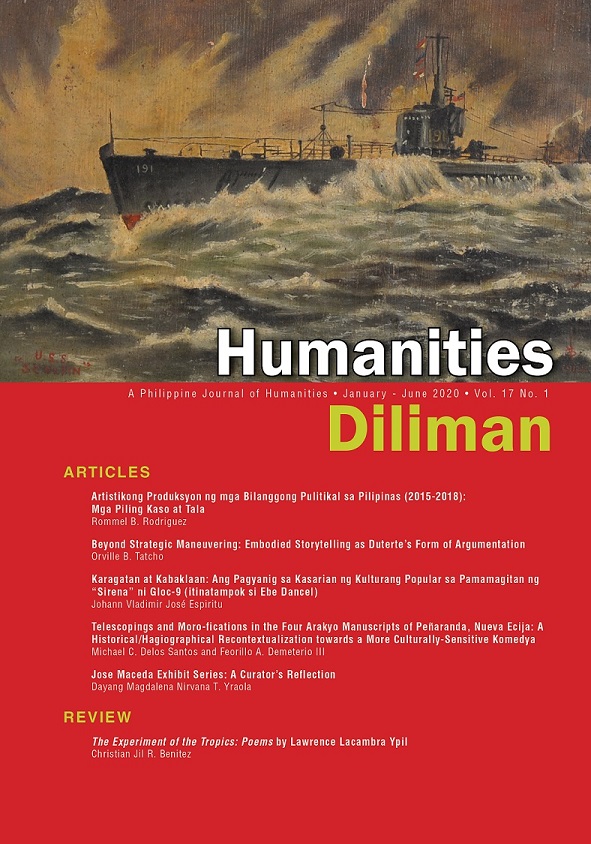Beyond Strategic Maneuvering: Embodied Storytelling as Duterte’s Form of Argumentation
Abstract
What underscores the appeal of Duterte’s rhetoric? What is Duterte’s form of argumentation, and what are its functions and limitations? How can Duterte’s rhetorical performance inform political campaign discourse in the future? This paper aims to answer these questions through a rhetorical analysis of President Rodrigo Duterte’s performance in the televised presidential town hall debate of April 2016, co-hosted by television giant ABS-CBN. There is a need to study Duterte’s rhetoric in the debate to show which among his promises were fulfilled and abandoned. Strategic maneuvering, a framework developed to analyze presidential debates, highlights Duterte’s promises in the debate with its focus on lines of argument (logos). However, this paper posits that Duterte’s rhetoric is not primarily based on logos, and there is a need to spotlight his use of ethos and pathos (appeals to credibility and emotions). I argue that Duterte capitalized on embodied storytelling—a humanizing rhetoric that demystifies the presidency. Through embodied storytelling, Duterte constantly used his identity as a source of narratives that resonate with the public. I explain how Duterte’s storytelling functions, where it draws its currency and its pitfalls. Finally, I propose rhetorical considerations for future political campaign discourse through factors such as embodiment, identification, resonance, and cultivation.
Published
2020-08-28
Issue
Section
Articles
Keywords
embodied storytelling, presidential debates, Rodrigo Duterte, strategic maneuvering


